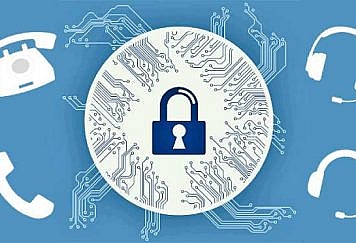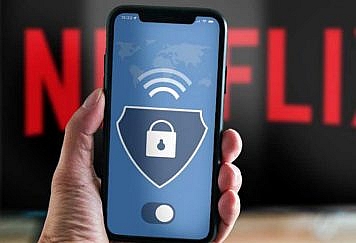Almost a year has passed since the beginning of the world pandemic, but the topic of coronavirus is still one of the most discussed. Unfortunately, many unscrupulous companies and individuals use it for their own gain and sometimes even to check email deliverability. We’re talking about fraudulent emails that send suspicious offers to get users’ personal information. Recorded Future, a cybersecurity company, named the following domains as potentially dangerous:
- coronavirusstatus[.]space
- vaccine-coronavirus[.]com
- coronavirus[.]cc
- coronavirus[.]app
- coronavirusaware[.]xyz
- coronavirus-map[.]com
- survivecoronavirus[.]org
- blogcoronacl.canalcero[.]digital
- coronavirus-realtime[.]com
Now let’s take a closer look at what kind of fraudulent emails you can face.

What are Phishing Emails?
Some organizations or individuals with a dubious reputation seek to take possession of users’ personal data to carry out subsequent fraudulent actions. They do this through massive email campaigns in which they disguise themselves as popular brands.
Typically, such emails contain a direct link to a fraudulent website that is very similar to the real one. By clicking on the link, you can see a landing page that encourages you to enter your username or password or even your credit card details.
Types of Coronavirus Scam Emails
Phishing attacks are dangerous and can cost the company millions of dollars in losses. Therefore, you need to defend against them. But first, we will look at the main types of phishing attacks related to the coronavirus.
#1 Advertising of Individual Testing Products or Medicines
A popular type of fraud has recently become “advertising” letters that offer to buy express covid tests at an affordable price. Many managers around the world also complained that they received suspicious letters with an offer to purchase supposedly effective medications to protect their employees from the virus. Some of these emails contained quotations from immunologists confirming the miraculousness of these drugs.
Be careful, these emails are aimed at collecting as much personal data as possible. But the good news though is that law enforcement agencies, including the FBI, are working hard to find such scammers and bring them to justice.
Please note that if you are offered something for free, it is most likely a scam. Additionally, there are also no drugs that would prevent coronavirus infection. If they do really existed, the global pandemic would have ended last year.
#2 Email with Covid Test Results
According to Statista, at the end of February 2021, more than 348 million tests for covid were carried out in the United States. Naturally, those who have tested only recently await their results. The cybercriminals launched a massive phishing campaign disguised as emails with test results.
Many citizens have complained that they have received similar letters with strange references to the opening of personal health records. After clicking on the links, the malware is downloaded to the victim’s device and starts collecting personal data. At the same time, the victim may not even know that spyware is running on their device.
If you expect your results, check with the medical institution where you did the test, in what form, and when to expect them.
#3 Vaccination Invitation
Since the beginning of 2021, vaccination against coronavirus has started in the United States. For now, you can make an appointment online at your state’s website. Please note that those who are at risk are vaccinated first. These are persons over 65, medical workers, teachers, civil servants, and law enforcement agencies. Everyone who is not at risk will receive the vaccine later.
Due to the great excitement around vaccinations, scammers began to send emails offering citizens to get vaccinated without waiting in line. To do this, you need to follow the link in the email and leave your personal data. Please note that this is dangerous! Such web pages are aimed at taking possession of confidential information and then using it for fraudulent purposes. Pay attention to the website address. Verified resources end in .gov.
#4 Fake World Health Organization Phishing Email
Emails in which scammers impersonate the World Health Organization are quite common. They send malicious emails to launch an attack on a user’s computer. In the hope that the WHO is a highly trusted resource, which means that the individual will not suspect fraud. Pay attention to the address from which the letter was sent. If it is too long or contains numbers or symbols, it looks like cheating.
#5 Email Deliverability Check and Coronavirus Scam
Various online platforms and e-commerce websites try to increase their benefits by spreading spam messages. They send emails with an attached link that contains a redirect to unknown pages to intercept personal data. This is quite common when you are offered to read the breaking news or shock content, but the site requires registration. In addition, it can also be ransomware or spyware. Get information only from trusted news platforms like Washington Post, WSJ, NY Times, BBC, and Forbes.
#6 Email With a Call for Charity
When you receive an email with a story about how Third World countries are losing their fight against coronavirus, it can be a gimmick. They usually contain sentimental stories of countless victims, photos from overcrowded hospitals, or children who have lost their parents. At the end of the email, there is usually an offer to donate $ 5 or $ 10 to the fight against coronavirus in disadvantaged areas.
The entire text of the letter is drawn up taking into account psychological tricks. Therefore, users are ready to transfer money even without knowing who the sender is. Moreover, such emails may contain payment details or a link that will redirect you to the payment page.
The story may indeed be overwhelming, but that shouldn’t discourage you. The only possible charity in this area is the COVAX program announced by the World Health Organization. But they never send emails asking to donate money to charity.
Tips to Escape From Internet Phishers
Email scams can be highly persuasive. Suspicious individuals use psychological tricks to instill confidence in users. Therefore, we have compiled a list of essential tips for you to help you protect yourself from phishing:
- Be suspicious. Pay attention to the address that sent you an email. If you are offered any free services, this can be a trap. Trust information only from government websites or from the World Health Organization.
- Avoid checking limited offers. If you receive an advertisement for a valuable product that is produced in limited quantities, it is most likely a scam. When an offer sounds too good, it means there are hidden benefits. Truly valuable products will never be cheap.
- Don’t answer questions. If you are asked to provide your personal data, most likely they want to use it for fraudulent purposes. You are under no obligation to share confidential information. Don’t click on suspicious links or buttons in attachments. If you think you have shared your bank account or credit card details with ill-wishers, call your bank to take appropriate action.
- Never trust an email that doesn’t contain your name. If an individual wants to contact you, they will do their best to find out your name. No-name emails are aimed at the fact that most likely the user will not pay attention to this. But the truth is, if there is no name for the addressee, then this is most likely a scam.
- Protect your devices. Make sure your laptop or smartphone is using security apps. Use antivirus software. You can also install anti-spyware or anti-spam extensions that will warn you about suspicious emails. Remove phishing emails as soon as you receive them.
How Can I Check Email Deliverability for My Business?
Some marketers advise sending trick emails to check if a user is receiving your letters. They offer to disguise an offer for a well-known brand or exciting topical to get the user to click on the link. At the same time, unlike phishing, such a link is quite harmless, since the page to which it leads does not collect personal data and does not install a spy code into the user’s device. But never do that anyway!
It is recommended you also consider implementing email authentication protocols into your emails and domain. By using DMARC, DKIM, BIMI, and SPF record checker tools and they will provide an extra layer of security as well as protect you from being a victim of phishing or spoofing attack.”
Do not dishonestly check email deliverability. Even if you are not planning anything bad, it will bring you lots of problems. These campaigns will hit your business reputation very badly. A company that is not trusted by customers will never be successful. If you are having problems with deliverability, it is worth contacting a marketing professional. Belkin has seasoned pros who deliver top-notch marketing solutions. They apply the best marketing practices and approaches to help clients effectively grow.
Follow TechStrange for Technology and Business News. If you want to submit a guest post technology at Techstrange then you can contact us.





